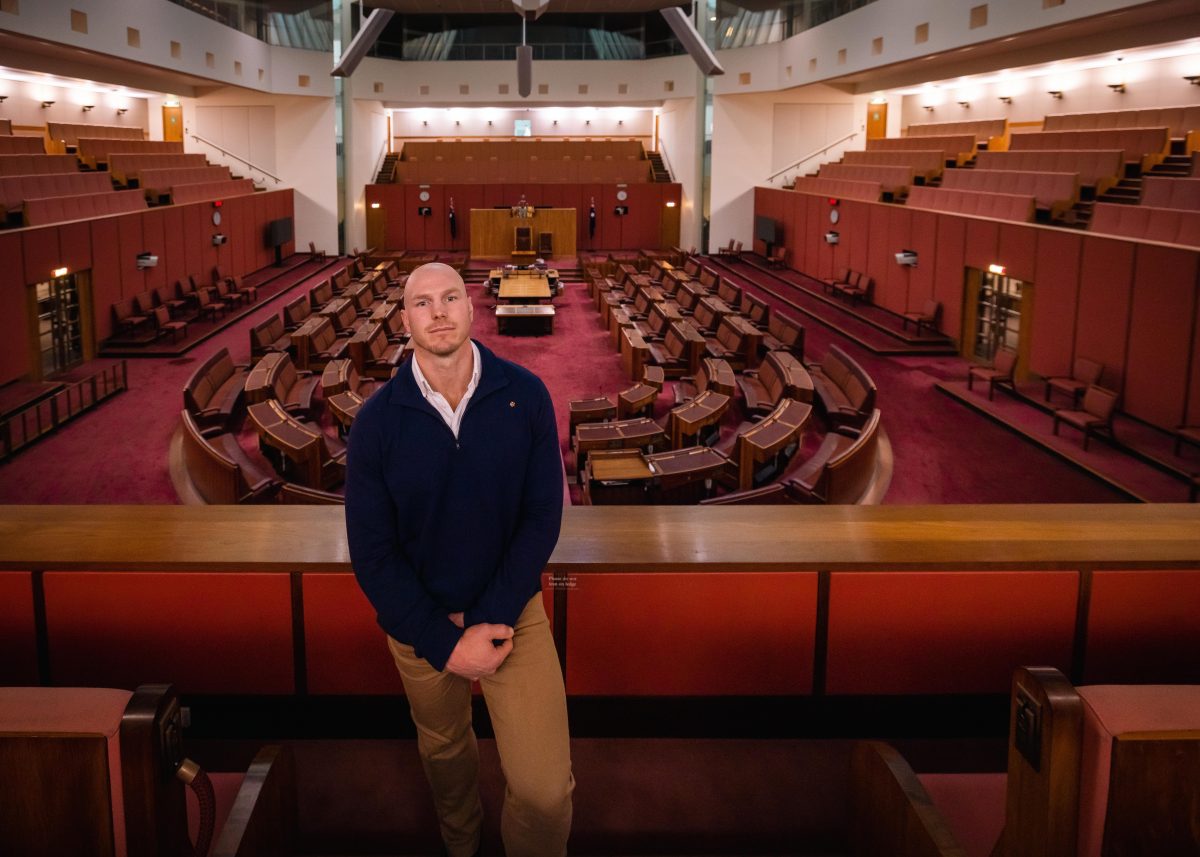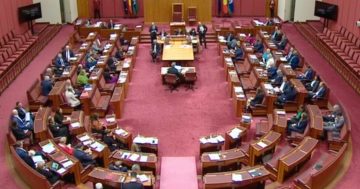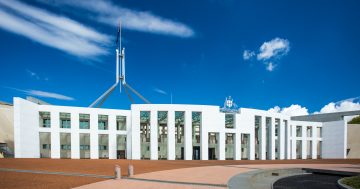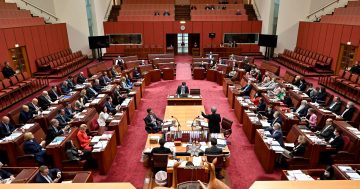
Senator David Pocock in the Senate chamber: “This is not a cost-saving exercise, this is a political decision.” Photo: Lincoln Magee.
Key ACT Independent Senator David Pocock has warned the Albanese Government not to take his vote for granted as he and other crossbench MPS and Senators vent their fury at the Prime Minister’s decision to slash the number of parliamentary staff they can employ.
Senator Pocock, who could very well hold the deciding vote on government legislation, said cutting the crossbench parliamentary staff from four to one at Adviser level was bad for democracy and issued a veiled threat that bills could be held up as a result.
“I will need to consider my position alongside my fellow Senate crossbenchers but I am deeply concerned about being asked to vote for legislation that I haven’t been allowed the time or resources to properly examine, consider and in some cases seek to improve,” he said.
A letter from Mr Albanese sent to crossbench members and Senators late on Friday (24 June) advised them of the new staffing arrangements, which also include the current allocation of four electorate officers.
Government, Opposition and Greens MPs will retain their current allocations.
The crossbench sees the decision as a direct attempt to reduce their influence in the new parliament.
While Labor does not need crossbench support in the House of Representatives, it will need them in the Senate to pass legislation.
Mr Albanese said the crossbench could use the Parliamentary Library, which he said the government intended to better resource, or call on the Clerk of the Senate for procedural advice.
Finance Minister Senator Katy Gallagher said it was a budget-saving decision and it was the Prime Minister’s prerogative to allocate staff.
But Senator Pocock rejected the idea that the government’s motivation was to save money.
“This is not a cost-saving exercise. This is a political decision – a decision that shortchanges the people of the ACT,” he said.
“We already have less federal representation than other states, and this will make it even more difficult to ensure our voices are heard.
“One person to help get across and coordinate our community’s views on the government’s proposed laws and push for the changes on everything we want from equal rights for territories to integrity and climate.”
Senator Pocock issued a joint statement with other crossbench Senators saying the staffing cut was an attack on democracy and would hamper their ability to scrutinise legislation and do their jobs properly.
“This is also a direct attack on the people of Australia who decided to put their trust in independents and minor parties to represent them federally, by withdrawing the resources we need to advocate for them in the Parliament,” Senators Pocock, Jacqui Lambie, Tammy Tyrrell, Pauline Hanson and Malcolm Roberts said.
They said the staffing decision had significantly damaged government relationships with the crossbench.
“We urge the Prime Minister to reconsider his decision and restore existing staffing in the interests of supporting integrity and accountability in the Australian Parliament,” they said.
The statement said the Jenkins Review of parliamentary workplaces was clear that offices were already under-resourced and staff struggled to keep up with the significant workload.
Senator Pocock said Mr Albanese had sent a “pretty poor message” to those who supported Independents and minor parties because they wanted better representation and a better way of doing politics.
“When the PM took office he told Australians that he would treat the crossbench with respect. Hindering the ability of the minor parties and the independents to properly represent the nearly one-third of Australians who voted for us is not doing that.”
Senator Pocock said the decision was hypocritical and a double-standard that actively disadvantaged community-backed independents while preserving the status quo for the major parties.
He said the decision would also impact the service of electoral offices to the community if staff from there had to be diverted to support the parliamentary office.
It would also limit the scope of his work at Parliament including moving private senator’s bills, and playing a more active role in committees and Senate inquiries, and Senate estimates.





















